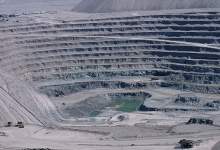
The Canadian mining industry has once again found itself at the centre of controversy; this time it’s the government’s perpetual support for the industry that has been criticised after a government body was recently accused of conducting ‘industrial espionage’.
Last week it was alleged that the Communications Security Establishment Canada (CSEC) has been spying on Brazil’s Mines Ministry.
The allegations were brought to light as part of the drip-feed of leaks coming from the former United States National Security Administration (NSA) contractor Edward Snowden, who leaked them via reporter Glenn Greenwald and The Guardian.
Greenwald alleges to have seen documents that show the CSEC hacked into the Brazilian Mines Ministry’s communications system, although it’s not entirely clear what CSEC was looking for.
However, in an interview with CBC Radio, Greenwald said the offices the CSEC targeted were to do with regulating and helping Brazilian industry to explore mining and the mineral industry.
Canada, where two thirds of all mining companies are based, has around 50 companies with investments in the Brazilian mining industry, including Yamana Gold and Eldorado Gold, therefore it is suspected the espionage was conducted in a bid to gain an upper hand on Brazil’s mining ministry or to pre-empt its next step.
Greenwald told the radio station the spying was clearly conducted to "bestow economic and industrial advantage onto Canadian industry".
MiningWatch Canada, an NGO watchdog, speculated that the spying could be to do with a proposed new Brazilian mining bill presented for debate in June of this year, which included a proposed doubling of mining royalties to 4%.
Further revelations
It has also been claimed by The Guardian that the same government agency participated in secret meetings with energy corporations. According to Freedom of Information Act documents requested by the paper, the meetings, which involved federal ministries, spy and police agencies, along with representatives from scores of companies, were organised twice yearly to discuss "threats" to energy infrastructure, but also covered "challenges to energy projects from environmental groups", "cyber security initiatives" and "economic and corporate espionage".
These latest revelations add to increasing criticism of the Canadian government’s increasingly aggressive support of the mining industry and for its flimsy regulation of Canadian companies working abroad, which are often accused of, or embroiled in, human rights abuses.
According to MiningWatch Canada, in March the Canadian Ambassador Robert Peck met with the Mayor of Alexandroupolis in Greece, Vaggelis Lampakis, to pressure him into accepting Eldorado Gold’s open-pit and underground gold mine project, which has been vociferously opposed by the local population.
In February, Canadian Ambassador for Mexico Sara Hradecky intervened in favour of Esperanza Resources, whose gold and silver open-pit mine project has been hotly contested by residents in the surrounding area, environmental groups, state and federal environmental authorities.
Also in March, a Human Rights Watch report highlighted the lack of government regulation of industry when it published a report revealing human rights abuses at a Canadian mine in Eritrea, Africa. In response to the report Jamie Kneen of MiningWatch Canada told Mining Technology: "The government here is very pro-industry and they view allegations of environmental, human rights and labour abuses as public relations problems they share with the industry."
Alienating friendly countries
So far Canadian Prime Minister Stephen Harper has remained silent on the matter because of "national security", except to say he is "very concerned" about the allegations.
But it’s clear Brazilian Prime Minister Dilma Rousseff is far from pleased. She recently snubbed a pre-planned visit to America, which is part of an intelligence sharing network with Canada that also includes Britain, New Zealand and Australia.
It’s now a concern for Canadian citizens how far their government will go, or has gone, and who it will alienate, in pursuit of furthering the interests of its already huge mining industry.
"We’ve already seen how Canadian embassies around the world essentially act as agents for Canadian companies – even when they’re implicated in serious human rights abuses," Kneen told The Guardian.
"We just had no idea how far they were willing to go."
Related content
Canadian mining abroad – controversy and calls for legal regulation
Human rights abuses, rape, murder, environmental devastation and war crimes are just some of the atrocities that have been linked to Canadian mining companies during recent years, yet the industry continues to operate without a legal framework. As more of these accusations surface, is it time the Canadian Government took responsibility for one of its biggest industries?
Landmark report sparks debate over gold’s economic impact
The World Gold Council has revealed details of a first-of-its-kind-report that examines the direct economic impact of gold.



